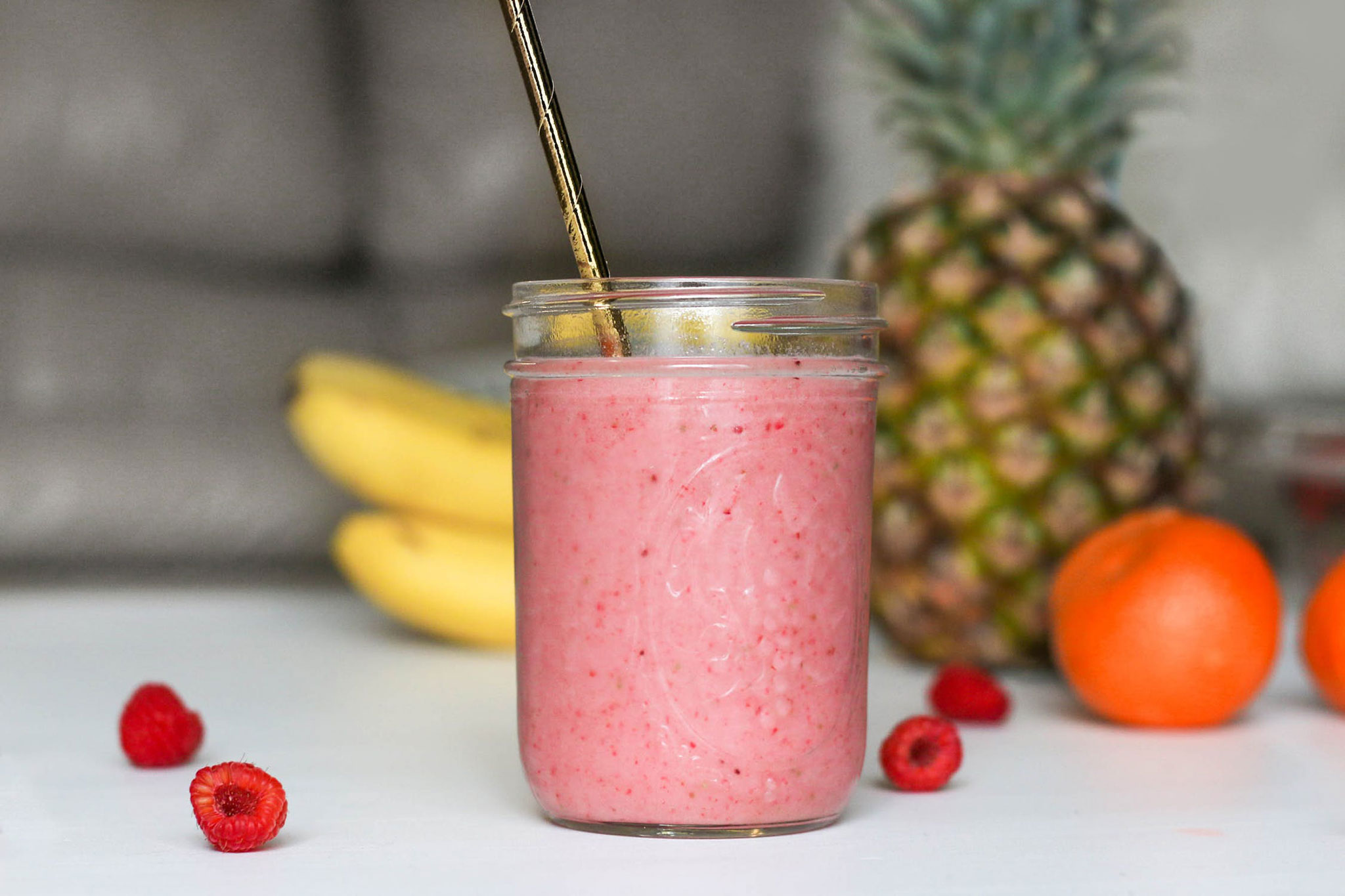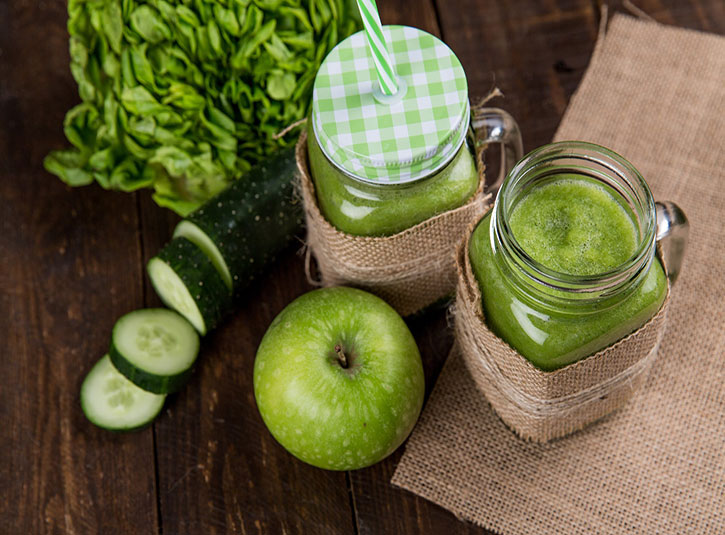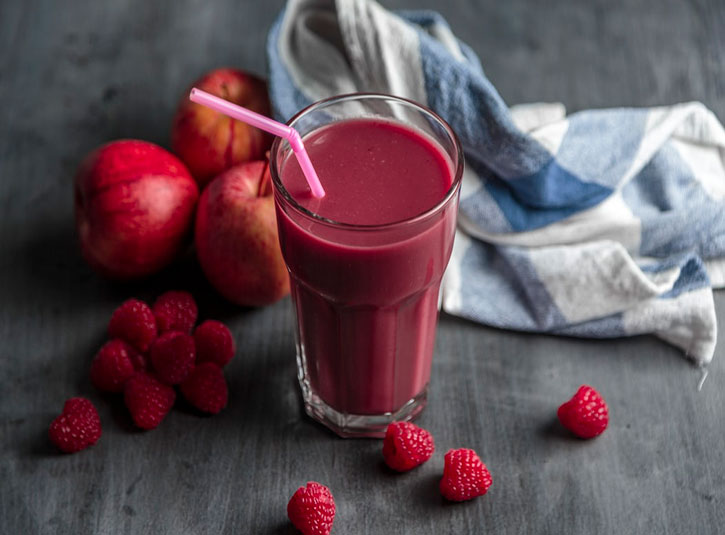
The good (and bad) news about juice cleanses
posted on
It’s officially swimsuit season and some of us aren’t feeling ready to flaunt our winter curves on the beach. For many of us, getting back to our beach bods means pulling out the bicycle, eating more fruits and vegetables and less heavy carbs, and hitting the gym. We might also be curious about just how effective juice cleanses are in kick-starting healthier eating habits, detox, and weight loss.
Several articles deep into my search of “do juice cleanses work?” suggests that the jury’s still out. The scientific community is definitely less enthusiastic about juice cleanses than many consumers, trainers and, of course, natural juice companies. But there’s not a lot of evidence either way.
So before you buy a set of all-natural, freshly made and unpasteurized juice for a several day (or even week) long detox—and cut out all other food—double check with your doctor, naturopath and/or dietitian to confirm that you have all of the information and it’s right for you. Obviously, don’t buy a made-from-concentrate (high sugar) juice from your local corner store.
What do the yaysayers and naysayers have to say about juice cleanses? Today we’ll look at the pros and cons, starting with the good news.
The Good News about Juice Cleanses
You can cut out allergens and food sensitivities. Cutting out the top food offenders such as sugar, gluten, alcohol, and dairy for a few days may give your body the break it needs—and may help you realize any sensitivities as you reintroduce it to your diet.
You may lose temporary water weight. Eliminating complex carbohydrates, sugar, and alcohol, as examples, often results in an immediate drop in water weight and sometimes less bloating and inflammation, but unless you change your regular diet, it’s only temporary.
You will likely get a nutrient boost. Eating a plant-based diet is good for your health and could help give your body a much-needed boost of vitamins and minerals.
The Bad (or other) News about Juice Cleanses
“There is no science to suggest that you need to detox your body,” says Joan Salge Blake, a professor at Boston University and nutrition and healthy eating expert. “Your body is smarter than that. You have built-in detox organs, the liver and kidney clean up any waste that needs to leave the body.”
High sugar levels and no carbohydrates and fats can be dangerous for some people. Fruits are high in fructose sugar, which could spike blood sugar levels and be very dangerous for diabetics and anyone with kidney disease. “That will cause your body to produce insulin faster, making your blood sugar drop,” says nutritionist Leah Kaufman MS, RD, CDN. “This results in dizziness and feeling lightheaded.”
Many people complain of fairly severe side effects. For example, because you’re not eating a well-rounded diet that includes fats, fiber and protein, you may experience headaches, lightheadedness, dizziness, fatigue, diarrhea, depression and irritability. Juice fasts leave out many of the critical nutrients that your body needs in order to perform. “Without sufficient protein, your body has no raw materials with which to build new tissue,” explains Livestrong.com. “A lack of fat leaves your skin and hair in poor shape and contributes to malabsorption of fat-soluble vitamins.”
Juicing actually removes the digestive-helping and nutrient-rich fiber. The process of turning fruits and vegetables into juice removes the valuable fiber from the produce, which helps the body break down, digest and smooth the gut tract. “When you stop using these digestive enzymes, your body thinks you don’t need to produce them anymore,” says Amy Shapiro MS, RD, CDN. “This can lead to discomfort when reintroducing foods after even one day of juicing.”
Where Does this Leave us?
Many people feel great during and after juice cleanses. This could be because they believe they’re taking control of their health and doing something good for their body, perhaps they’re finally having lots of fruits and vegetables, or because they’re breaking bad food habits.
Drinking fresh-squeezed juice is good for you, but consider balancing the cleanse with other essential, healthy nutrients. Quite simply, your body needs carbs, fat, protein, vitamins, and minerals, water and fiber in order to function properly.
In a recent blog post, I wrote about the power of the Mediterranean diet, which has many similarities to highly plant-based diets and even the juice cleanse. Where the diet is different from the cleanse, however, is it’s more balanced and (obviously) more sustainable.
Looking for fresh-pressed juice for breakfast catering or an afternoon pick-me-up in your office? Foodee has you covered.
Filed Under: Foodee HQ

